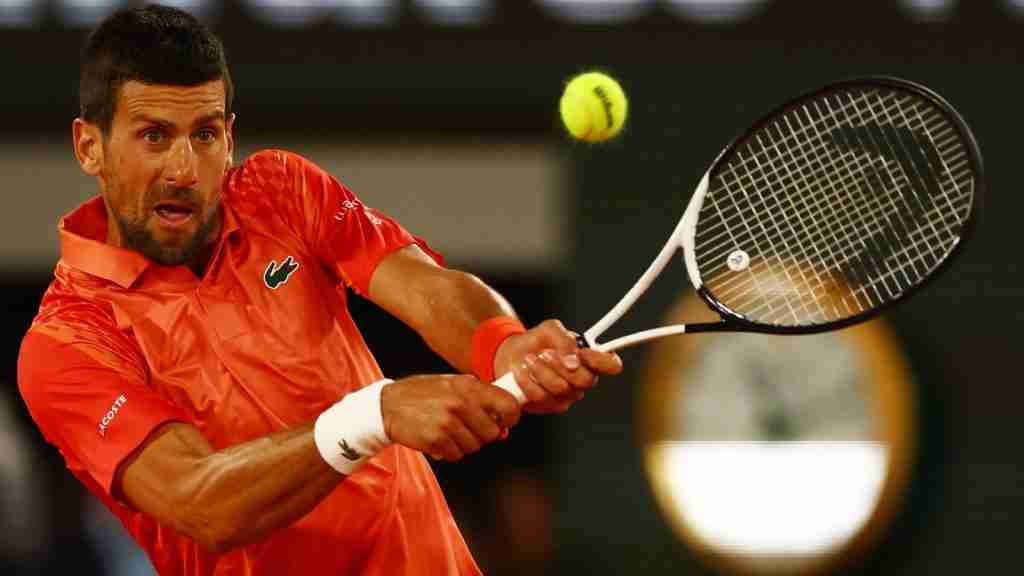Novak Djokovic appeared ready to turn the page on the latest non-tennis issue he has been embroiled in at a Grand Slam tournament. Criticized after his final match for comments he made about clashes in northern Kosovo between Serbs and NATO peacekeepers, the 22-time major champion steered clear of political issues Wednesday night.
At the end of his 7-6 (2), 6-0, 6-3 victory over Marton Fucsovics in the second round of Roland Garros, Djokovic, a 36-year-old Serb, wrote on the lens of a television camera – a habit at more and more tennis tournaments – and kept it simple, with an autograph and a smiley face.
It was very different from what happened after his victory on Monday, when Djokovic drew attention for writing in Serbian: “Kosovo is the heart of Serbia. Stop the violence,” and then speaking on the subject at a news conference with reporters from his home country.
This prompted rebukes from a member of the French government, Roland Garros tournament director Amélie Mauresmo and the Kosovo tennis federation.
Sports Minister Amélie Oudéa-Castéra warned Djokovic on Wednesday morning against any further intervention on international issues at Roland Garros, saying his comments were “not appropriate”. Speaking on France 2 television, Oudéa-Castéra said Mauresmo was encouraging Djokovic and his entourage to maintain “neutrality” on the court.
Asked about Oudea-Castera and Mauresmo, Djokovic replied: “I have no further comment on that. I said what I had to say.”
As for the underlying topic, Djokovic said: “Of course, I’m aware that many people will disagree, but that’s the way it is. It’s something I stand for. That’s all.”
This sort of situation isn’t exactly new to Djokovic. After all, he missed the Australian Open and the US Open in 2022 because he never got a COVID-19 vaccine. When he returned to Australia this year, he was questioned about his father’s presence with a group of people waving Russian flags — at least one representing Vladimir Putin — outside the main stadium.
“A Grand Slam without drama, I don’t think that can happen to me,” Djokovic said Wednesday. “You know, I guess that’s what motivates me too.”
He found plenty of tennis-related reasons to get annoyed during the epic first set against Fucsovics, which lasted an hour and a half.
One problem was Fucsovics’s strength and quality of shot from the start. The other was the wind that blew through the main stadium, rippling players’ jerseys and sending flags flying at the top of the arena until they wrapped around their posts. That swirling wind blew the clay off the court, which led to another problem for Djokovic: unsteady footing.
He was slipping and struggling to place his feet properly. Djokovic asked the chair umpire to add more clay to the playing surface. He also criticized the umpire for not giving enough importance to the breaks between games.
Yet it was Djokovic who proved the better player in the important moments against Fucsovics, dominating the tie-break.
At the change of ends that followed that set, Djokovic changed his shirt and television cameras zoomed in on an object the size of a bottle cap that appeared to be stuck to his chest. It was not immediately clear what it was.
Asked about this by a journalist, Djokovic avoided answering directly and preferred to opt for sarcasm: “When I was a kid, I really liked Iron Man, so I try to imitate him. My team offers incredibly effective nanotechnology to help me perform at my best on the court, so that’s the biggest secret of my career. Without it, I probably wouldn’t be sitting here.”
